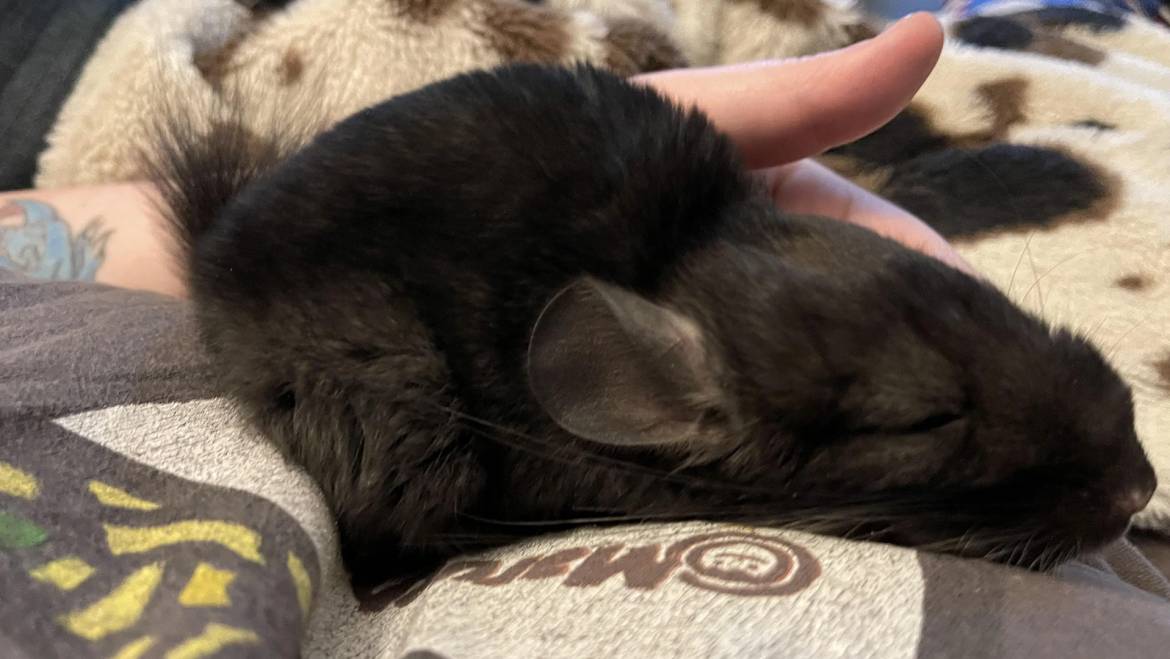Chinchillas are incredibly cute and playful creatures that make fantastic pets. As a chinchilla owner, it’s essential to keep your furry friend healthy and happy, and one of the most important aspects of their health is their respiratory system. Unfortunately, chinchillas are prone to respiratory problems, which can be caused by various factors such as poor living conditions, dust exposure, and bacterial or viral infections. In this article, we will discuss the most common respiratory issues that chinchillas face, their causes, symptoms, and treatments.
Understanding the Respiratory System of Chinchillas
The respiratory system of chinchillas is similar to that of humans, consisting of the nose, throat, trachea, and lungs. They breathe through their nose and mouth, and their lungs absorb oxygen from the air and eliminate carbon dioxide. Chinchillas breathe quickly and efficiently, and any respiratory issue can cause severe problems for them.
Common Respiratory Problems in Chinchillas
- Upper Respiratory Infections (URI): URI is one of the most common respiratory issues that chinchillas face. It can be caused by bacteria or viruses and can lead to nasal discharge, sneezing, coughing, and difficulty breathing.
- Pneumonia: Pneumonia is a severe respiratory infection that affects the lungs. It can be caused by bacteria or viruses, and symptoms include fever, lethargy, lack of appetite, labored breathing, and coughing.
- Asthma: Asthma is a chronic respiratory condition that can cause inflammation of the airways and difficulty breathing. Chinchillas with asthma may show symptoms like wheezing, coughing, and labored breathing.
- Allergies: Chinchillas can be allergic to dust, pollen, or other environmental factors. Allergies can cause respiratory problems like coughing, sneezing, and nasal discharge.
Causes of Respiratory Problems in Chinchillas
- Poor Living Conditions: Chinchillas are sensitive to their environment, and poor living conditions can cause respiratory issues. Dusty, dirty cages or poor ventilation can lead to respiratory problems.
- Bacterial or Viral Infections: Chinchillas can contract bacterial or viral infections that can lead to respiratory issues. These infections can be transmitted through contact with infected animals or contaminated objects.
- Allergens: Allergens like dust, pollen, or mold can cause respiratory problems in chinchillas. Chinchillas that are sensitive to these allergens can develop allergies and respiratory issues.
Symptoms of Respiratory Problems in Chinchillas
- Sneezing: Chinchillas that are experiencing respiratory issues may sneeze frequently.
- Coughing: Chinchillas with respiratory problems may cough frequently.
- Nasal Discharge: Respiratory problems can cause nasal discharge in chinchillas.
- Labored Breathing: Chinchillas that are experiencing respiratory problems may breathe with difficulty or make noises while breathing.
- Lethargy: Respiratory issues can cause chinchillas to become lethargic and lose their appetite.
Prevention and Treatment of Respiratory Problems in Chinchillas
- Provide a Clean Living Environment: Regularly clean your chinchilla’s cage and provide proper ventilation to prevent respiratory problems.
- Avoid Exposure to Allergens: Limit your chinchilla’s exposure to dust, pollen, and other allergens.
- Quarantine new animals: If you are introducing a new chinchilla into your home, quarantine it for a few weeks to prevent the spread of any potential infections.
- Seek Veterinary Care: If you notice any symptoms of respiratory issues in your chinchilla, seek veterinary care immediately. Respiratory issues can be severe and potentially life-threatening if left untreated. Your veterinarian will be able to diagnose the issue and recommend a treatment plan, which may include antibiotics, anti-inflammatory medication, and other supportive care.
- Provide Supportive Care: You can provide supportive care to your chinchilla while they are recovering from respiratory issues. This includes providing extra water, encouraging them to eat, and keeping them warm and comfortable.
Respiratory problems are common in chinchillas and can be caused by various factors such as poor living conditions, bacterial or viral infections, and allergens. The symptoms of respiratory issues can be severe and potentially life-threatening, making it essential to seek veterinary care immediately if you notice any signs of respiratory problems in your chinchilla. By providing a clean living environment, avoiding exposure to allergens, and seeking veterinary care when needed, you can protect your chinchilla’s respiratory system and ensure that they remain healthy and happy.







